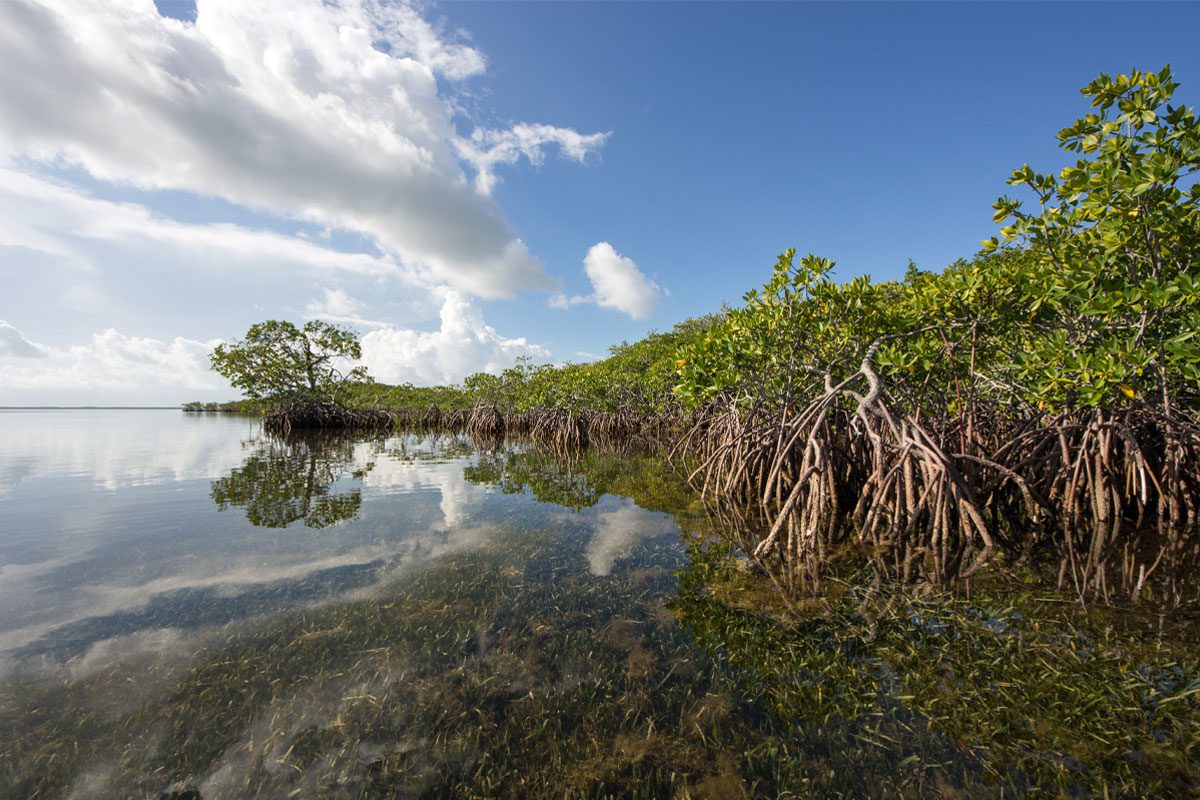
New research appears to find that wetland conservation has a higher potential mpact for mitigating climate change than other ocean-based solutions.
Conducted by Imperial College Business School, London, in partnership with global management consultancy BIP, and strategic-design studio Sketchin, the findings seem to show that the restoration and preservation of wetland areas, such as mangroves, holds the potential to sequester up to 144MTCo2e in Europe – equivalent to 4% of the EU’s annual emissions, while also being easier to implement than alternative measures.
Oceans already act as climate regulators and according to the UN generate 50% of the oxygen we need, absorb 25% of all carbon dioxide emissions and capture 90% of additional heat generated from those emissions. The research looked to explore this and identified biodiversity loss, sea-level rise, and extreme weather events as the most crucial topics to tackle in terms of overall impact, urgency, and geographical reach. The oceans can provide various ‘services’ to help tackle these issues, and fourteen solutions were evaluated.
Using seven key measurements, the research set out to assess ocean-based solutions that hold the best solution in addressing ocean climate-related challenges. These criteria include biodiversity impact, pollution impact, carbon impact, readiness level, costs, trade-offs and scalability.
Many governments and companies have not properly valued the ecological and wider services provided by the oceans, explains BIP. They are a climate regulator and a provider of food and energy, and also support tourism and millions of jobs. Our oceans have been in steep decline. However, the landscape is evolving, albeit slowly, towards an approach that better values and protects the oceans. While there is a way to go to reverse the decline, this shift is gaining momentum following regulatory change such as the EU Nature Restoration Law in July 2023, and greater investment in nature-based solutions.
The findings were clear: wetland conservation proved to be the most crucial ocean-based climate mitigation solution. These areas provide various benefits to the overall health and well-being of the environment and society, offering critical habitats, breeding grounds and sources of food for shellfish, birds, and other organisms. Wetlands also play a central role for economies, acting as a critical resource for both fishing and tourism.
In addition to these benefits, these areas are crucial in helping to mitigate climate change by storing carbon and reducing the impacts of rising sea levels by acting as a barrier against storms.
In terms of costs, BIP estimated a cost per tCO2e sequestered of $132 for seagrass, $91 for saltmarshes and $48 for mangroves. Given the high upfront cost of wetlands restoration projects and inherent uncertainty in the desired outcomes, several funding mechanisms can be employed to reduce the risk for those investing in the projects for commercial return.
“These thriving environments are the heartbeat of our ‘Blue Planet,’ providing the very oxygen we breathe and sustaining life as we know it,” said a statement from Imperial College Business School. “To safeguard this vital resource and drive meaningful change, private capital must be deployed. At the same time, businesses have a unique opportunity to be catalysts for ocean conservation and sustainable growth.”







